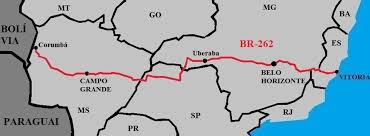
Introduction: Brazil’s Global Significance
Brazil, the largest country in South America, has long been a focal point of global interest due to its rich culture, vast natural resources, and dynamic economy. As the world continues to grapple with various challenges, including climate change, social inequality, and political instability, Brazil’s actions and policies play a crucial role on the international stage. This article outlines the major developments in Brazil as of 2023, shedding light on its relevance and future implications.
Political Landscape: Challenges and Changes
In early 2023, Brazil witnessed a significant shift in its political landscape following the presidential elections in 2022. Luiz Inácio Lula da Silva, returning to power after a tumultuous term from 2003 to 2010, has been focusing on progressive policies aimed at addressing social inequality and environmental concerns. Lula’s government has pledged to reverse many policies instituted by his predecessor, Jair Bolsonaro, particularly those impacting indigenous rights and environmental protections in the Amazon rainforest.
Efforts to strengthen democracy continue as Lula’s administration combats misinformation and seeks to foster political unity in a country recently divided by electoral tensions. His commitment to inclusive governance aims to restore public faith in democratic institutions, while also navigating ongoing challenges such as rising crime rates and inflation.
Environmental Efforts: Protecting the Amazon
One of the cornerstones of Lula’s agenda is environmental conservation, particularly concerning the Amazon rainforest. In 2023, Brazil recommitted itself to international climate agreements, including targets for reducing deforestation rates, which reached critical levels during the previous administration. The new government’s approach underscores the importance of protecting biodiversity while balancing economic development.
International partnerships are being formed to aid these conservation efforts, with Brazil seeking to collaborate on sustainable development initiatives that support both local communities and global environmental goals. These initiatives are not only vital for Brazil’s ecological health but also for addressing global climate change.
Economic Outlook: Growth and Challenges
Brazil’s economy is showing signs of resilience, bouncing back from the strains of the pandemic and inflationary pressures. The government has undertaken measures to boost economic growth, including investment in renewable energy and technology sectors, which are expected to create jobs and drive innovation. However, challenges remain, such as high unemployment rates and fluctuating commodity prices that can affect Brazil’s export-driven economy.
Conclusion: The Future of Brazil
As Brazil navigates through 2023, the world watches closely. The changes in its political and environmental policies signal a paradigm shift towards sustainability and inclusivity, promising pathways for both domestic and international progress. Brazil’s approach to tackling social issues and environmental challenges will not only shape the future of the nation but also influence global discussions on climate change and economic cooperation.
For readers, understanding Brazil’s actions today is critical, as they will have reverberating effects well into the future, impacting global markets, environmental policies, and international relations.
You may also like

Understanding the Current Political Landscape in the UK

The UKIP Party: Recent Developments and Future Outlook

Qatar’s Growing Influence in Global Affairs
SEARCH
LAST NEWS
- Remembering Wendy Richard: The Promise to Co-Star Natalie Cassidy
- How Did Anglian Water Achieve an ‘Essentials’ Rating for Mental Health Accessibility?
- Shai Hope Leads West Indies in T20 World Cup Clash Against South Africa
- What We Know About Weston McKennie: Future at Juventus and Past at Leeds
- What We Know About the Upcoming Live Nation Antitrust Trial